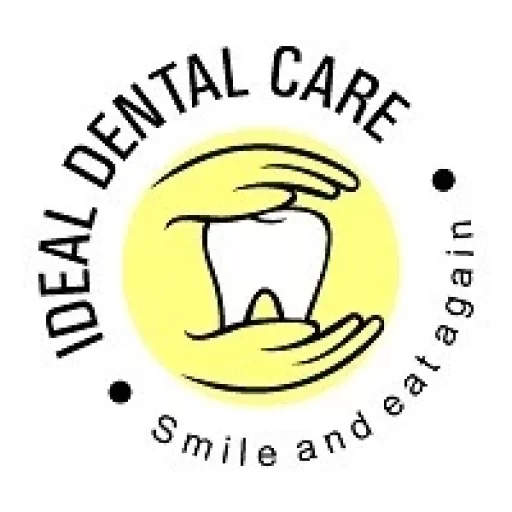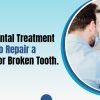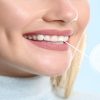Have A Bad Breath? Know the causes and the cure
Do you suffer from bad breath? Yes, known as halitosis in medical terms, this common condition can lead to serious dental issues if left unaddressed. Understanding the causes of bad breath and finding effective cures is crucial for optimal dental care.
What is Halitosis (Bad Breath)?
Halitosis is the medical term for bad breath. While occasional bad breath after consuming strong foods like garlic or onions is normal, persistent bad breath (chronic halitosis) could indicate an oral health issue or a condition affecting other parts of your body.
Halitosis is a warning message from your body, as it can be a symptom of various underlying conditions. Identifying the root cause of halitosis is crucial in effectively treating the issue.
What are the symptoms of Halitosis?
Halitosis, a prevalent condition, impacts roughly 1 in 4 individuals worldwide. A comprehensive research study consolidating data from 13 medical journal articles revealed that approximately 31.8% of the global population experiences halitosis. The primary symptom of halitosis is a persistent foul-smelling breath that lingers and may be noticeable to others due to its strong odor.
What are the Health Problems Caused by Bad Breath?
Despite poor oral hygiene being the leading cause of halitosis, it’s essential to note that it is not the sole culprit. Various other conditions can also contribute to the cause of bad breath, such as:
- Dry Mouth: Insufficient saliva production can lead to halitosis, with smoking and certain medications contributing factors.
- Head and Neck Cancers: Symptoms of oral or oropharyngeal cancer, like persistent sores, mouth pain, difficulty swallowing, neck lumps, and unexplained weight loss, can cause bad breath.
- Gastroesophageal Reflux Disease (GERD): This digestive disorder allows stomach acid or fluids to flow back into the oesophagus, leading to halitosis.
- Tonsil Stones: Hardened calcium deposits called tonsil stones or tonsilloliths may form when food becomes trapped in the tonsils.
- Gum Disease: Gingivitis, characterized by red, swollen, and bleeding gums due to plaque buildup, can lead to halitosis. Untreated gingivitis can progress to periodontitis, causing tooth and bone loss. Trench mouth is an advanced gum disease with severe symptoms like pain, bleeding, fever, and fatigue.
- Infections in Nose, Throat, or Lungs: Conditions like pneumonia can produce unpleasant-smelling liquid, contributing to bad breath.
- Diabetes: Diabetes Patients face an increased risk of gum disease, which, in turn, can impact blood sugar management and lead to super smelly breath.
- Liver or Kidney Disease: Liver and kidney function are crucial for toxin filtration. In people with liver or kidney disease, halitosis can arise due to the accumulation of these toxic substances.
- Sjögren’s Syndrome: An autoimmune disease that can cause muscle pain, dry eyes, skin, and mouth, often associated with halitosis.
Halitosis is a complex condition, and while poor oral hygiene remains a primary cause, it’s crucial to recognize and address these other potential underlying factors. Identifying the root cause is essential for effectively managing and treating halitosis and promoting optimal oral and overall health.
Food Affecting Breath
Our journey to foul breath begins with chewing and swallowing the food we consume. The initial breakdown of food items occurs in the oral region, where enzymes start digestion. Unfortunately, some foods, such as garlic and onions, contain strong odours that can persist even after brushing, flossing, or using medicated mouthwash. While these oral hygiene practices can temporarily subside the odour, they might not completely vanish it.
You may wonder why these odours linger. Well, it’s because the food we eat is soaked or absorbed into our bloodstream from our mouths. Once absorbed, these elements are transported to our lungs, affecting the air we exhale. So, if you’ve ever wondered what causes bad breath from the stomach, you’ll find that the root of the issue lies in the foods we consume.
Let’s explore some common foods that can cause bad breath:
- Cheese: Although delightful, certain types of cheese can leave a lingering aroma in the mouth.
- Pastrami: This savoury delight can leave its mark on your breath.
- Certain spices: Some spices, while flavorful, may contribute to unpleasant breath.
- Orange juice or soda: These acidic beverages can influence the odour of our breath.
- Alcohol: While enjoyable in moderation, alcohol can lead to breath with less than desirable fragrance.
Poor Dental Healthcare Habit Cause Bad Breath
Are you tired of battling bad breath and longing for a refreshing change? Look no further! Here are quick, effective, and easy ways to bid farewell to bad breath and confidently embrace freshness.
- Good Oral Hygiene – Brush, Floss, and Scrape:
bacteria.When brushing isn’tfeasible after meals, rinse your mouth with water to dislodge trapped bits. Additionally, change your toothbrush every two months or after an illness for optimal effectiveness. For an extra boost, use an antibacterial mouthwash twice daily to ensure fresh breath and deep cleaning.
When brushing isn’tfeasible after meals, rinse your mouth with water to dislodge trapped bits. Additionally, change your toothbrush every two months or after an illness for optimal effectiveness. For an extra boost, use an antibacterial mouthwash twice daily to ensure fresh breath and deep cleaning.
Regular dental checkups:
- Opt for Sugar-Free Chewing Gum:
- Stay Hydrated – Water is Your Ally:
- Choose Nutrient-Rich Foods:
Bonus Tip: Analyze Your Eating Habits and Avoid Smoking:
Keep track of the food you regularly consume and share it with your dentist if you suspect certain items may cause bad breath. Some medications can also contribute to foul mouth odours. Moreover, quit smoking and avoid tobacco-based products, as they significantly damage your oral health and increase the risk of various diseases in your mouth. By making healthier choices, you pave the way for optimum health benefits.
Treatment of Halitosis
Dealing with halitosis can be pretty distressing, but fear not! Here are some effective methods to combat halitosis:
- Addressing the Root Cause:
- Specialized Mouth Rinses:
- Permanently Eliminating Bad Breath:
- Prevention is Key:
Preventing halitosis begins with proper oral hygiene practices. Here are some essential guidelines for maintaining clean and fresh-smelling breath:
- Brush your teeth twice for at least two minutes daily.
- Make sure to floss everyday to remove plaque and debris between your teeth.
- Clean your tongue with your toothbrush or a scraper to remove odour-causing bacteria.
- Use alcohol-free antibacterial mouthwash to maintain oral freshness.
- Stay proactive in your oral health by visiting your dentist regularly for routine checkups and professional dental cleanings. Your dentist will determine the ideal frequency of visits based on your specific needs.
- Stay hydrated by drinking plenty of water to avoid a dry mouth, which can contribute to bad breath.
- Stimulate saliva production by using sugar-free chewing gum or consuming healthy, fibrous foods that require substantial chewing. Your dentist may also suggest products to stimulate or provide artificial saliva.
- Avoid alcohol, caffeine, and tobacco as they can lead to dry mouth, exacerbating bad breath.
By adhering to these expert tips, you can bid adieu to halitosis and welcome a fresh breath transformation that will leave you more confident in your daily interactions. Remember, a healthy and radiant smile starts with proper oral care!
Take Away
Don’t let bad breath hold you back! Armed with knowledge about halitosis and its causes, take charge of your oral health for a breath of fresh confidence. Regular dental checkups, specialized rinses, and addressing underlying issues are essential in treating halitosis. Prioritize good oral hygiene, hydrate with water, and eat nutrient-rich foods.
Ready to achieve a radiant smile and fresh breath? Schedule a visit with Ideal Dental Care today! Our expert team will provide personalized solutions to address your needs and help you embrace a healthier, more confident you.




